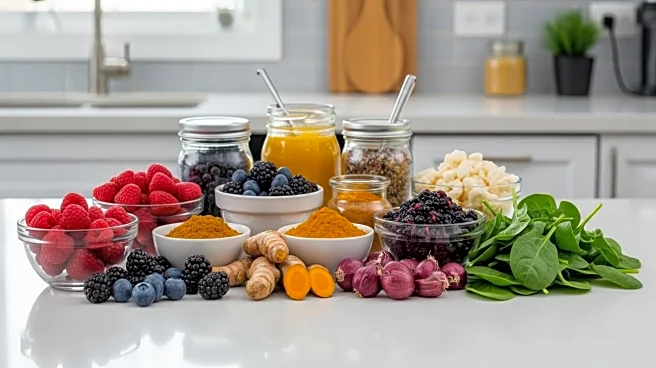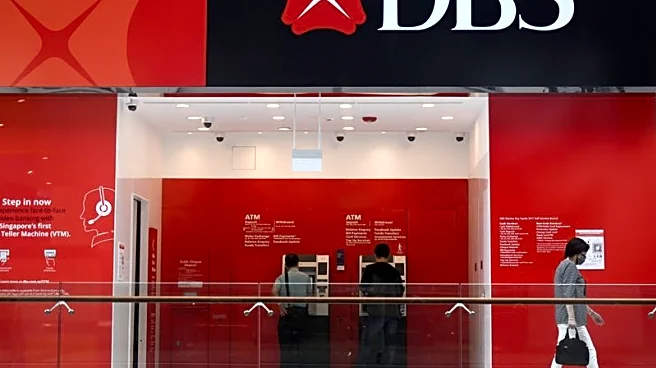What is the story about?
What's Happening?
PepsiCo is undertaking a significant transition to replace artificial dyes in its products, such as Gatorade and Cheetos, with natural alternatives. This move comes in response to growing consumer demand for products free from synthetic colors. Currently, about 40% of PepsiCo's U.S. products contain synthetic dyes. The company is exploring natural ingredients like paprika, turmeric, and purple sweet potatoes to replicate the vibrant colors consumers associate with their products. This transition is expected to be a multi-year process, involving extensive testing and regulatory approvals from the U.S. Food and Drug Administration (FDA).
Why It's Important?
The shift towards natural dyes reflects a broader consumer trend favoring transparency and natural ingredients in food and beverages. This change could influence the food industry, prompting other companies to reconsider their use of artificial additives. For PepsiCo, aligning with consumer preferences could enhance brand loyalty and market share. However, the transition poses challenges, including maintaining product taste and appearance, ensuring ingredient supply, and managing potential cost increases. The FDA's expedited approval of natural additives is crucial for the industry's adaptation to these consumer demands.
What's Next?
PepsiCo plans to introduce naturally dyed Tostitos and Lay’s products later this year, with more products to follow. The company will continue to test consumer responses and work with the FDA for necessary approvals. As consumer demand for natural ingredients grows, PepsiCo and other companies may face pressure to accelerate their transitions. The success of these initiatives could set a precedent for industry standards and regulatory practices regarding food additives.

















